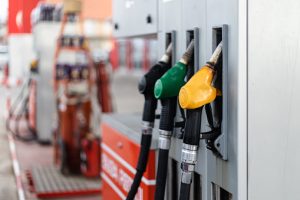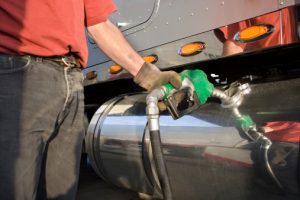What distinguishes diesel engines from gasoline ones?
The majority of cars have diesel or gasoline engines, which are very similar. They function primarily as internal combustion engines with either a two- or four-stroke cycle. The power cycle of an internal combustion engine consists of four stages: intake, compression, power, and exhaust.
Air is sucked into the cylinder during the intake phase by the opening intake valve. The intake valve closes and air and fuel are compressed during the compression phase. At this point, the fuel and air mixture ignites, resulting in an explosion. The piston moves downward as a result of this explosion, which also moves the crankshaft. The power phase is now. Exhaust is the last stage, in which the used air-fuel mixture is ejected from the cylinder through the open exhaust valve to allow for the start of a new cycle.
The primary distinction between diesel and gasoline engines is that while diesel engines only employ highly compressed air, gasoline engines also use spark plugs to ignite the air-fuel mixture. As was already noted, Rudolf Diesel discovered that by compressing air tightly, it was possible to raise its temperature to an appropriate level. The temperature would increase to a level where diesel fuel could ignite as a result of the extreme heat.
Processing in refineries: gasoline versus diesel
Hundreds of different kinds of hydrocarbons are mixed together in crude oil, along with various contaminants that vary depending on the crude oil’s source. The hydrocarbons must be separated by one method of refining or another in order to generate gasoline, diesel, or any other oil-based products:
Because different hydrocarbon chain lengths all have boiling temperatures that increase with increasing chain length, they may all be distinguished by a procedure called fractional distillation. Crude oil is heated in a distillation column as part of the process.

Alkanes with 12 or more carbon atoms are the building blocks for gasoline and diesel. Their boiling point ranges from 250 to 350 degrees Celsius.
Several methods are used to change some fractions into others after distillation:
Unification is the process of joining smaller hydrocarbon chains to create larger ones. Alteration is the process of rearrangement of different isomers to produce desired hydrocarbons.
This, for instance, enables a refinery to change diesel fuel into gasoline based on the demand for gasoline. Additionally, refineries will mix different fractions (processed and unprocessed) to create the required products. For instance, various combinations of hydrocarbon chains might result in gasoline with varying octane ratings.
Impurities such water, dissolved metals, inorganic salts, and organic molecules, nitrogen, and oxygen are treated out of distillate and chemically processed fractions.
Benefits and Drawbacks
What other benefits do diesel engines offer over their petrol counterparts, except the fact that they are more efficient? What drawbacks do diesel engines have, then? Here, let’s quickly review a few of the more significant ones.
Pros
Diesel engines are not only more cost-effective, but diesel fuel is also more readily available. Diesel fuel is currently about 40% less expensive per liter than gasoline. Due to the lower operating costs associated with diesel engines, buses and the majority of cabs are powered by them.
Diesel engines are so effective that cars can travel far on a single tank of fuel. Passenger automobiles with modest 50-liter fuel tanks frequently have a range of more than 1000 kilometers on a single tank. As a result, there will be less time for refueling and more time spent traveling.
Diesel engines are designed to be incredibly durable and will typically survive longer than their petrol equivalents due to the tremendous compression of gases within the cylinders.
Cons
Diesel engines typically cost more to produce because they need to be designed stronger to resist the high gas compression. As a result, diesel vehicles occasionally cost more than their gasoline-powered counterparts. This significantly depends on the producer.
Diesel clatter is the name for the unique knocking sound that diesel engines make. Fuel suddenly igniting results in a pressure wave, which produces this sound. Diesel engines sound noisier and less refined as a result.
Diesel engines are not suitable for sports cars since they are heavier and less eager to rev than petrol engines. Diesel-powered vehicles become less exciting to drive as a result.

Unique Tax
Due to the negative reputation diesel vehicles have received, diesel cars used to be uncommon in Singapore. The fact that a significant special tax was imposed on diesel vehicles didn’t help their reputation for being slow and dirty. Diesel vehicles are subject to a specific tax because diesel fuel is duty-free. On the other hand, gasoline is subject to a gasoline duty, which, according to the LTA, promotes fuel efficiency and discourages the excessive use of gasoline-powered vehicles that may increase traffic and pollution.
But during the previous ten years, times have drastically shifted. Governments are recognizing the environmental advantages that diesel automobiles have and have placed laws in place to encourage their sales. Diesel technology has advanced quickly in recent years. Sales of diesel vehicles have increased as a result. Sales of diesel vehicles in many European nations, including Austria, Belgium, and Germany, are on par with or even exceed those of gasoline-powered vehicles.
